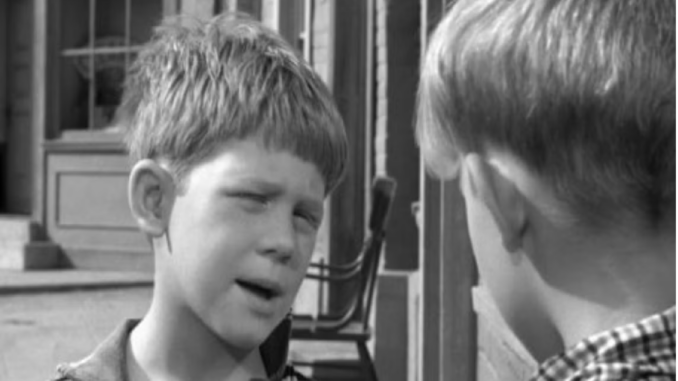
Howard was asked about the freshness of Opie’s character in The Andy Griffith Show, and went on to explain how the character was altered from his original form. Before Howard’s father stepped in, Opie Taylor was written as a wise-cracking, precocious young kid in the way many child characters at the time were. After the first episode, Howard’s father suggested a softer alternative to Griffith, wherein Opie “actually respected his father.” Check out the full quote from Howard below:
This is something that means a lot to me, and I didn’t know anything about it at the time, but later Andy told me this. So when we were doing a revival, Return to Mayberry, or one of those sort of interview specials or something, Andy told me that in that very first season, the first episode, that my dad — was an actor, not a famous actor, but he was a professional, working — took it upon himself to just go up quietly to Andy at one point and say, ‘Now I see they’re writing Opie kind of the way they write the Rusty Hamer character on Danny Thomas. And like so many shows, where he’s a wise ass. And he said, ‘You know, Ronnie can do that and everything, but what if he actually respected his father?’ And Andy thought about it, and told me years later that he went back to the writers and said, ‘Let’s write Andy-Opie like Ronnie-Rance.’ And let’s try that. And they went for it.
Why This Opie Decision Was A Good One
The Andy Griffith Show Maintained an Organic Feel
Opie’s character is far more human, believable, and likable than many other child characters on TV, and imbues The Andy Griffith Show with the profound sense of kindness that so characterizes the show.
The Opie change was not the only thing that now-director Howard revealed about The Andy Griffith Show in his conversation with O’Brien. Earlier in the interview, the host asked him to speak about the slow dialogue scenes that were typically held between Andy and Barney. Howard then revealed that the majority of those scenes were improvised, used to fill in for time when the episodes were coming in short. The scenes that resulted from this process felt like real conversations, and that was because they were.
Ron Howard’s Post-Opie Legacy
Ron Howard Has A Prominent Directing Career
When Howard was a teenager, he dabbled in the behind-the-scenes part of the industry when he started directing his own short films. In 1977, Howard directed his first feature film, Grand Theft Auto. In addition to helming the film, he also starred in the movie alongside his father, Rance. From there, Howard focused much of his career on directing, going on to create notable works including Parenthood, Apollo 13, Willow, and Cinderella Man.
Howard has won two Oscars, both for A Beautiful Mind, which he directed and produced. He also received Oscar nominations for Best Director and Best Picture for 2008’s acclaimed Frost/Nixon. In recent years, he has directed a smattering of documentaries and based-on-true-story films, including Thirteen Lives and this year’s Jim Henson: Idea Man, and he also has a number of upcoming projects, such as The Shrinking of Treehorn and The Fixer.
